| Description : | Background
Prenatal exposure to maternal smoking is a major determinant of child respiratory health. Increasing evidence indicates that maternal psychosocial stress during pregnancy also impacts child respiratory health [1-5]. As these exposures may affect similar biological pathways, they potentially have synergistic effects. However, studies investigating the interaction between maternal smoking and psychosocial stress during pregnancy on child respiratory health are lacking.
In a recent (unpublished yet) study conducted in a large project (Exposome Impulsion Project ; https://exposomeinserm.fr), we assessed the effects of the interactions of maternal tobacco smoking and psychosocial stress during pregnancy on the development of child wheezing and asthma in 13,510 mother-child pairs from the ELFE cohort (Etude française longitudinale depuis l’enfance) [6; https://www.elfe-france.fr] by using survival Cox models. Preliminary results support a complex moderating role of cumulative prenatal maternal psychosocial stress in the relationship between maternal smoking and child respiratory health.
Aims of the internship
To further explore these associations, we propose to investigate biological markers - maternal hair cortisol measured at child birth and cord blood cytokines - measured in subsamples of respectively 834 and 1019 ELFE mothers. Maternal cortisol has been shown to be a good proxy for chronic maternal stress [7]. Inflammation, assessed by cord blood inflammatory biomarkers (IL-6, IL-8, IL-1b…), is suspected to be an underlying mechanism of the association between maternal psychosocial stress and smoking and child respiratory health [1]. The aims of this internship are to:
1/ Estimate the associations between the psychosocial stress indicators we developed based on the questionnaire data and levels of maternal hair cortisol
2/ Study the effect of the interaction between maternal hair cortisol and tobacco smoking during pregnancy on child respiratory health using Cox regression models
3/ Estimate the associations of maternal psychosocial stress and maternal tobacco smoking with cord blood cytokines levels.
All data are already available. The results will be interpreted jointly with results from experimental models (animal studies) that are performed in parallel.
References
[1] Al‐Hussainy, A., & Mohammed, R. (2021). Consequences of maternal psychological stress during pregnancy for the risk of asthma in the offspring. Scandinavian Journal of Immunology, 93(1), e12919.
[2] Adgent, M. A., Buth, E., Noroña-Zhou, A., Szpiro, A. A., Loftus, C. T., Moore, P. E., ... & Carroll, K. N. (2024). Maternal stressful life events during pregnancy and childhood asthma and wheeze. Annals of Allergy, Asthma & Immunology, 132(5), 594-601.
[3] Brew, B. K., Gong, T., Ohlin, E., Hedman, A. M., Larsson, H., Curman, P., ... & Almqvist, C. (2024). Maternal mental health disorders and offspring asthma and allergic diseases: The role of child mental health. Pediatric Allergy and Immunology, 35(2), e14085.
[4] Magnus, M. C., Wright, R. J., Røysamb, E., Parr, C. L., Karlstad, Ø., Page, C. M., ... & Nystad, W. (2018). Association of maternal psychosocial stress with increased risk of asthma development in offspring. American journal of epidemiology, 187(6), 1199-1209.
[5] Ramsey, N. B., Chiu, Y. H. M., Hsu, H. H. L., Bosquet Enlow, M., Coull, B. A., Wright, R. J., & Carroll, K. N. (2024). Cumulative maternal lifetime stress & child asthma: effect modification by BMI. Stress, 27(1), 2435262.
[6] Charles, M. A., Thierry, X., Lanoe, J. L., Bois, C., Dufourg, M. N., Popa, R., ... & Geay, B. (2020). Cohort profile: the French national cohort of children (ELFE): birth to 5 years. International journal of epidemiology, 49(2), 368-369j.
[7] Kim, M. Y., Kim, G. U., & Son, H. K. (2020). Hair cortisol concentrations as a biological marker of maternal prenatal stress: a systematic review. International Journal of Environmental Research and Public Health, 17(11), 4002. |



















